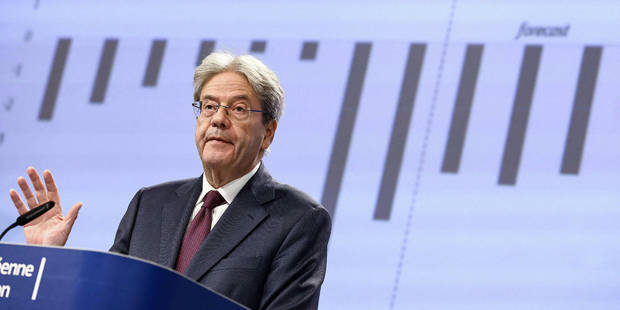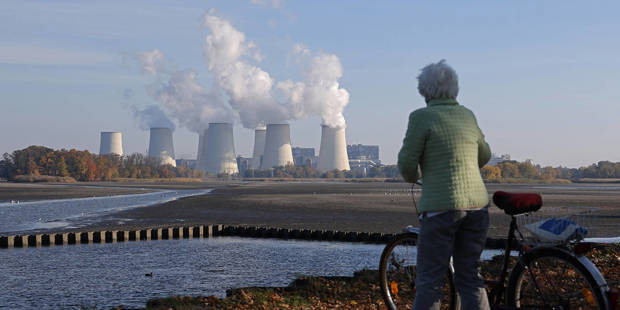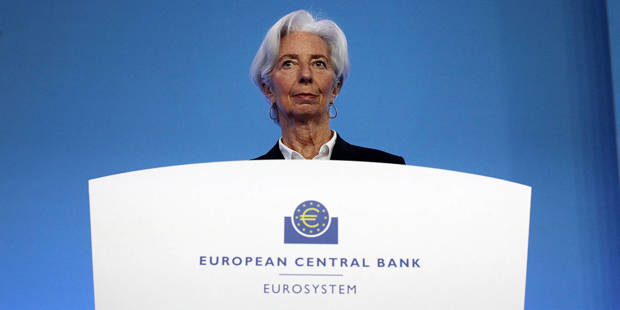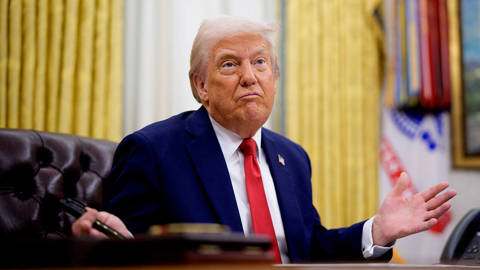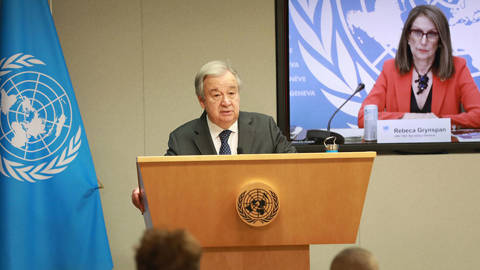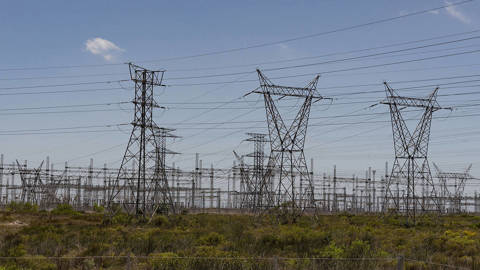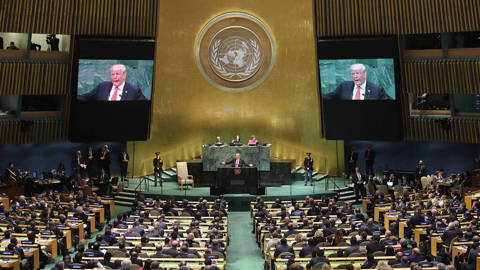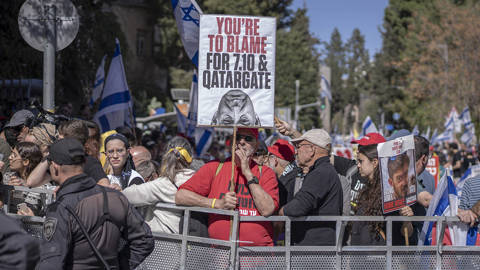How to Reduce Germany’s Surplus
In my article, I alluded to the empirical fact that Germany's Target claims are half of the country’s net-foreign-asset position, which itself results from the accumulated current-account surpluses of the past. Antonio Foglia takes up this side remark to repeat the juicy narrative about the origins of these balances that he and other authors, including Yanis Varoufakis, have emphasized in the last few years: that Germany welcomed, or should have welcomed, the Target credit to rescue its own banks and carry out vendor financing.
Yes, we can agree that the first wave of Target balances that accumulated until August 2012 resulted from the bailouts of the Eurosystem, preventing a default of the Southern eurozone members’ banking systems and governments, and that these bailouts also helped the foreign creditors, among them the German banking system.
But not only German banks were bailed out. While German banks were lending to the whole world, and thus may have indirectly helped finance the credits to the South and to Ireland, they were not the most exposed lenders. At the time of Lehman Brothers’ collapse in 2008, the exposure of the French banking system to Southern Europe and Ireland was a bit bigger than that of German banks, even though France has a significantly smaller economy. Among those being bailed out, the British banks took third place, followed by the Dutch. British and French banks were not net lenders in global terms. They acted as hubs, distributing the savings flows, which largely came from Germany, to the rest of the world, including Southern Europe. Nevertheless, most of the triangular bailouts resulted in the Bundesbank's Target claims, as French and British banks repaid their credits from Germany when they stopped lending to Southern Europe and Ireland.
Who wanted the bailouts? Was it the Bundesbank trying to rescue German banks along with French and British banks, as Foglia claims? I doubt it. The Bundesbank was largely opposed to the ECB’s bailout activities, arguing that the banks themselves, rather than European taxpayers, should bear the write-off losses. In many crucial decisions by the ECB Governing Council, the Bundesbank was simply outvoted. In fact, Bundesbank President Axel Weber and ECB chief economist Jürgen Stark both began protesting the bailout activities in 2010 – and resigned in 2011. The current Bundesbank president, Jens Weidman, has continued protesting publicly as well.
And who carried out the bailouts, the ECB or the Bundesbank? Strictly speaking, neither one: The bailouts reflected the decisions of Southern Eurozone members’ central banks and the Irish central bank to exploit the existing scope for local money printing and the additional scope generated by the ECB Governing Council’s policy decisions. In the first wave of Target balances, the ECB’s most important active decision was to reduce collateral requirements for refinancing credit. The ECB also accepted as collateral securities that were not traded and tolerated assets created by “ring trading” among banks, which meant that no effective collateral was provided.
The existing scope for local money printing came from “emergency liquidity assistance” (ELA) and the secret Agreement on Net Financial Assets (ANFA). ELA credit was generated in the hundreds of billions of euros by local central banks, as only a two-thirds majority in the ECB Governing Council could have stopped it. The ANFA agreement gives national central banks the right to local money printing for a limited set of purposes. Banca d’Italia, for example, used ANFA to purchase for more than €100 billion ($118 billion) in government bonds from the Italian banking sector.
All of these measures implied that the national central banks of Southern Europe and Ireland provided local commercial banks with the public credit that enabled them to repay the private credit international lenders were no longer willing to provide or roll over. Simply put, when the crisis erupted, the affected countries legally “printed” the money they could no longer borrow to fulfil their international payment obligations.
Printing is only a figurative term, though, as the extra liquidity was used for electronic international payment orders to other countries, which are reported as Target liabilities and claims on the national central bank’s balance sheets. The payment orders forced the recipient countries’ central banks to credit the payments. As a result, these central banks – above all the Bundesbank – became the ultimate providers of the extra refinancing credit issued by their counterparts in Southern Europe and Ireland.
In the process, all of the money issued by the Bundesbank turned out to be payment-order money, or “outside money,” to use a technical term introduced a half-century ago by John Gurley and Edward Shaw. The “inside money” resulting from the Bundesbank’s loans of freshly made money to German firms was gradually crowed out by the abundance of outside money.
Note also that the Target balances by no means reflected only the bailouts of existing foreign credit accumulated through previous current-account balances. They also reflected to a considerable extent new current-account deficits that were built up during the first few years of the crisis until 2011. (The details are reported in Chapter 7 of my book The Euro Trap: On Bursting Bubbles, Budgets, and Beliefs.) Moreover, the money from the printing press, as well as from the international fiscal rescue operations served to finance capital flight by domestic investors to other countries.
In a detailed study of Greece, I showed that from the beginning of the crisis until March 2015, the overall public credit provided by fiscal institutions and the Eurosystem to the Greek economy was €325 billion (182% of Greece’s GDP). Of this sum, about one third was used for retroactive financing of pre-crisis current-account deficits; one third was used to finance new current-account deficits; and one third was used to finance Greek citizens’ capital flight. Even in 2016, the sum of Greek private and public consumption was more than 10% above Greece’s net national income.
As for Foglia’s vendor financing narrative, did Germany really initiate Target financing for the purpose of selling its products to the South?
Again, it is useful to look at the facts. When the euro was formally announced at the European Council’s Madrid Summit in 1995, it was made clear that exchange rates would be irrevocably fixed. This caused the rapid elimination of the previously huge interest-rate spreads in Southern Europe within two years, triggering additional private and public credit. When the resulting inflationary bubble burst in 2008, it left behind overpriced torsos of once-competitive economies. Yes, the German current-account balances to some extent resulted from the Southern European and Irish imports that French, German, and British banks had financed; but it would be an exaggeration to accuse the French and British banks of serving Germany's secret vendor financing plan.
In contrast to those, like Foglia, who embrace the vendor credit narrative, I tend to believe that it was the euro as such that caused the excessive credit. The French, German, and British creditors surely would not have been as negligent as they were had they not anticipated that the euro would make bankruptcies of borrowing countries highly unlikely. After all, the printing presses in their basements would enable these countries, in case of emergency, to service their debt with a currency that other countries would have to accept as legal tender. Again, history vindicated these expectations. The implicit debt mutualization provided by the very existence of the euro as a currency provided by local central banks, rather than the ECB, had eliminated the interest-rate spreads and caused the bubbles in the South, which in turn resulted in these countries’ trade imbalances with Germany.
What about Foglia’s suggestion that, measured by the Target balances, Germany benefited from the bailouts?
It is true that the Bundesbank’s €857 billion Target claim is mutually guaranteed by all national central banks in the eurozone. Here, Foglia is formally right. If Target deficit countries default, by all central banks that remain in the Eurosystem will share the write off losses. But if the eurozone breaks up, the Bundesbank will be left claims against a system that no longer exists. No burden-sharing rules have been agreed for such a scenario. In all likelihood, the Bundesbank would lose its claims, which makes Germany vulnerable to blackmail in the upcoming negotiations about a European fiscal union.
But the outright write-off losses are not the main issue. Economic losses that take place anyway would merely have to be booked. The point is that the Bundesbank has Target claims that it can never call due – and that carry a miniscule rate of interest equal to the ECB's main refinancing rate. The ECB, meanwhile, reflecting the wishes of a majority of countries with substantial external debt positions, has set the refinancing rate equal to zero, and will likely keep it in that neighborhood for a long time, to prevent financially shaky eurozone states from defaulting. But what is the present value of a claim on an interest flow that will likely remain very close to zero for a very long time? And what is the value of a mutual guarantee by all central banks that they will service a zero rate of interest for a debt that will never expire?
In my opinion, the Bundesbank's Target claims imply a creeping, silent, and unspectacular, though elegant, expropriation of German taxpayers that allows the Bundesbank and the German government to save face, but will nonetheless impose on the German state a burden whose present value comes close to the face value of the Target claims. It follows from this interpretation that Germany has actually given away about half of its net foreign wealth, which by definition is its accumulated current-account surplus net of other write-off losses.
My concerns are becoming even more acute in view of the new surge in Target balances that has occurred since the summer of 2014. As the ECB rightly argues, this surge has little to do with the first wave culminating in 2012, which resulted from bailouts with the local printing presses and capital flight. Instead, it is more or less a technical reaction to the ECB’s program of quantitative easing (QE). This does not improve the situation, though; on the contrary, the Target balances now result from a planned asset swap that replaces nasty private creditors from abroad with the Bundesbank and a few other benevolent central banks.
As the QE program is symmetrical and based on the juste-retour rule to the extent that it applies to government bonds, it is not straightforward to understand why the Target balances, which proxy asymmetries among the euro countries, could arise in the first place. After all, each central bank repurchases its own government’s bonds in strict proportion to country size. Nevertheless, the asymmetries result from the fact that the bonds issued by Southern European countries have been largely dispersed outside these countries, because they were sold to foreign investors to finance the pre-crisis current-account deficits. The process of returning these bonds to the country of origin involves international payment orders that augment the Target balances.
To grasp this process, suppose a German insurance company sells a Spanish government bond to Banco de España. In this case, the latter gives a payment order directly to the Bundesbank asking it to make new money and give it to the seller, thus crediting the payment order. This transaction is an asset swap that converts an interest-bearing securitized Spanish debt held by a private creditor into a permanent book debt of the Spanish central bank vis-à-vis the Eurosystem. This debt carries a zero rate of interest and can never be called due. True, the Spanish central bank now has the government bond, and the Spanish state formally retains its debt. However, according to the juste-retour rule, the returns on the government bond (beyond the main refinancing rate, which in any case is zero) belong exclusively to the Spanish state. In Germany, on the other hand, the seller now has money that is a claim on the Bundesbank, and the Bundesbank has a zero-interest Target claim on the Eurosystem that it can never call due.
The Bundesbank is also involved in triangular asset swaps clearing the Spanish debt with other countries. If, for example, the Spanish central bank buys a Spanish government bond back from an investor in Shanghai, and this investor invests in Germany – say, by buying a German company – the end result is again that the Bundesbank has a Target claim, the Spanish central bank has a Target liability, and the German seller of the company holds money which is a claim against the Bundesbank. However, the German company now belongs to the Shanghai investor, while the Spanish government debt has basically been wiped out in economic terms and replaced with a book debt vis-à-vis the Eurosytem.
Of course, this is only an example. But foreign investors have indeed tended to bring their money to Germany, which is one of the reasons for the unprecedented overheating of its economy, as measured by the Ifo indicator or architects’ stock of unfilled orders. Currently, the outside money issued by the Bundesbank to fulfill payment orders from other countries inside and outside the Eurosystem stands at about 30% of the entire eurozone monetary base. This is more than the 26% the Bundesbank would normally have issued as inside money in a fully proportional and symmetrical equilibrium.
Are these good deals for Germany? Is it vendor financing that allows German exporters to keep producing goods for the rest of the world?
At best, the correlation between these semantics and what actually happens in the Eurosystem approaches zero. The German economy is definitely not gaining. One should not confuse the German economy with the German export sector. The country has become an innkeeper where customers can buy unlimited drinks and the proprietor can chalk up his claims, but with no right to demand payment or charge interest. If his clients are ultimately unable or unwilling to pay their tabs, he has earned no money; he has merely lost time and resources.
The situation is serious, and it cannot be resolved with superficial and false narratives. On August 16, Germany’s Constitutional Court expressed for the second time its opinion that the ECB is overstepping its mandate and violating the Lisobon Treaty’s prohibition of monetizing the state debt, and it again appealed to the European Court of Justice concerning the purchases of government bonds by the Eurosystem. The ECJ may once again side with the ECB, as it did in its ruling on outright monetary transactions. But the ECJ probably cannot afford an open confrontation with the German court, which ultimately is the only legal institution with the authority to rule on whether a European Union policy is compatible with Germany’s constitution. And the constitution is very clear about giving budgetary authority to EU institutions. The power of the purse belongs solely to the Bundestag; its full or partial transfer to a European institution would require a referendum in Germany.
So, what should we do? In my opinion, the QE program has to stop now, and we should offer debt relief to those countries that cannot service their debt, allowing them to exit the euro temporarily and recover by way of devaluation. This would help these countries get back on their feet by boosting their competitiveness. The debt relief would have to be negotiated in a European debt conference and include all kinds of debt, including bank debt, state debt, and the Target debt. Such a strategy would hurt the creditors, including Germany; but it would lead Europe back to a sustainable equilibrium, as most debt-relief plans have done.


